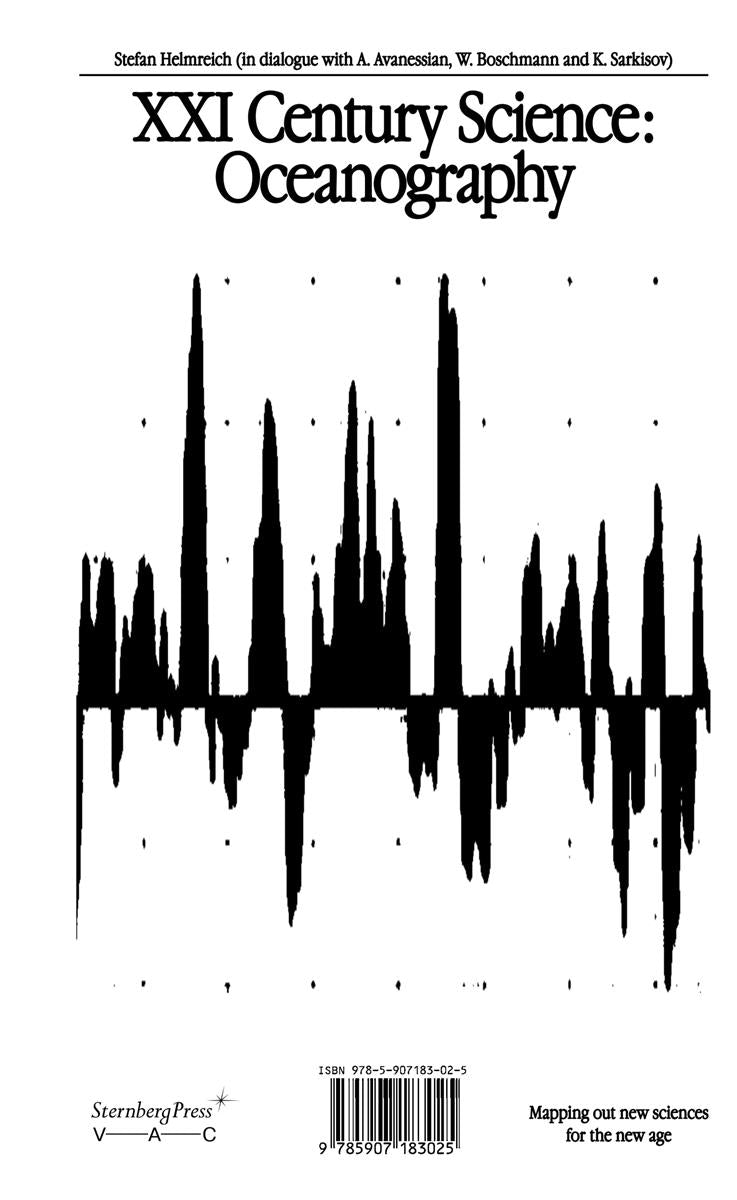Armen Avanessian, Werner Boschmann, Karen Sarkisov
Oceanography
Oceanography
Couldn't load pickup availability
Edited by Armen Avanessian, Werner Boschmann, Karen Sarkisov | Sternberg Press (2021)
In recent years, a new field of scientific research has been put forward, the so-called (microbial) oceanography, which offers a new mapping of the ocean from its shiny surfaces to lightless sea floors. Oceanography combines techniques of molecular biology, gene sequencing, bioinformatics, and remote sensing, among others. Oceans are a crucial factor in global climate and necessary condition for human survival on earth, and findings from oceanography can help people better understand life (and survival) in the Anthropocene.
Not only are all life forms of marine origin, but the oceans also host extremophiles—that is, microbial life forms living under extreme conditions of heat, cold, lack of light—which are integral to understanding what possible alternative life forms might look like. It may be that such mainly anthropogenic forces as overfishing, pollution, deep-sea mining, and acidification suggest that a new concept of the ocean—Anthropocean—needs to be discussed. New approaches in cultural studies as well as in the history of sciences are shifting our vision of the ocean, considering the previous realm of immeasurable broad and depth as a fundamental contrast to a human history and culture in order to rewrite it.
Edited in dialogue with Stefan Helmreich
Copublished with the V-A-C Foundation
Contributors
Penny Chisholm, Robert Danovano, Sabine Höhler, Jessica Lehman, Naomi Oreskes, Helen Rozwadoski, Philip Steinberg, Cindy van Dover
Series Overview: The XXI-Century Science series offers a cross section of current research in the natural sciences and humanities. Each volume engages with an issue that can be tackled only by combining the methodologies, critical perspectives, and insights developed in emerging areas of knowledge. With contributions from international scholars and thinkers, the series navigates uncharted scientific landscapes and privileges productive exchange, speculative thinking, and theories in the making.


